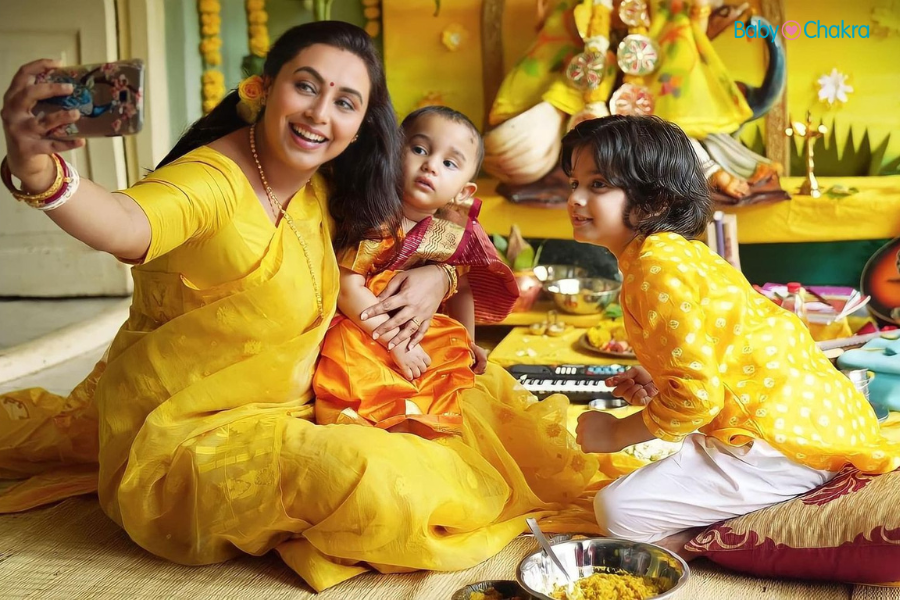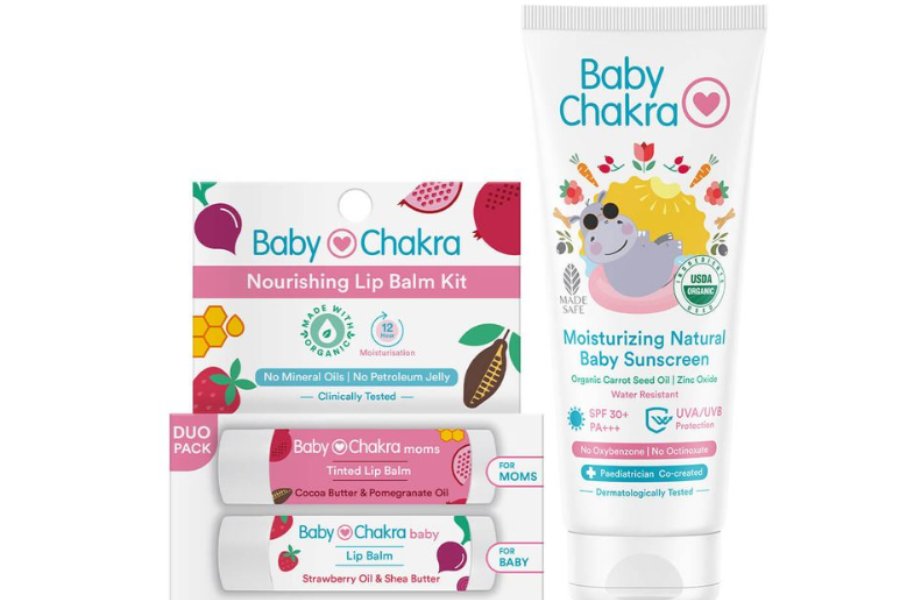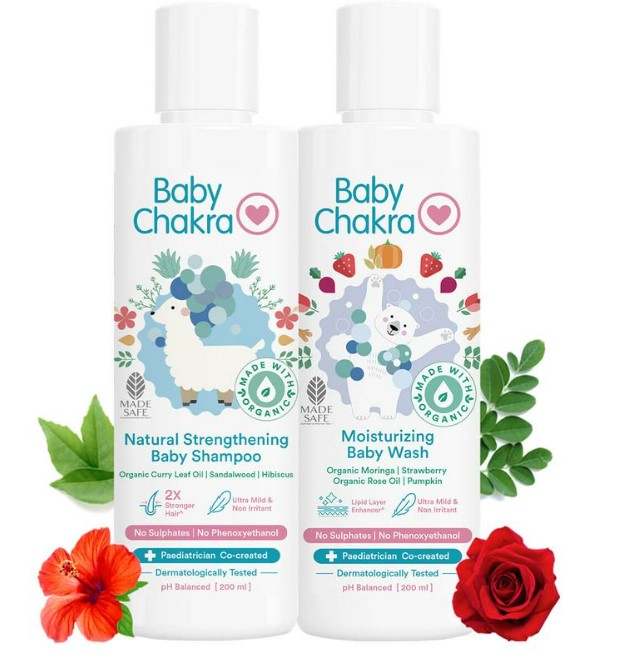
Rani Mukherjee’s Mrs Chatterjee Vs Norway Highlights Cultural Differences: Here’s A Look At Why Indian Parenting Styles Are Special
17 Mar 2023 | 6 min Read
Manisha Pradhan
Author | 1053 Articles
Rani Mukherjee’s Mrs Chatterjee Vs Norway is out at the theatres and has been receiving rave reviews. Mrs Chatterjee Vs Norway is a real-life story about an Indian couple, Anurup and Sagarika Bhattacharya’s struggle to win back the custody of their children, Avigyan and Aishwarya, who were forcibly taken away by the Child Protective Service in Norway in May 2011. This was followed by a harrowing battle to get their children back.
The Norwegian government had alleged that Mrs Chatterjee fed her kids with her hands which according to them is force-feeding, and is considered improper parenting! Little do they know that there’s something truly special about this tradition. It’s not just about nourishing the body, but also about nourishing the soul. Indian parents believe that feeding their children with their own hands is a sign of love and affection, and it’s a way to create a bond that lasts a lifetime.
They also alleged that the children were given inappropriate clothes and toys and objected to their toddler sleeping in the same bed as his father. While this parenting style is normal for us Indian parents, the Norwegian government thought otherwise!
Different Parenting Styles And Their Pros And Cons
Let’s take a look at some of the most common parenting styles, and the pros and cons of each.
The Tiger Mom
The Tiger Mom is a parenting style that is based on strict discipline and high expectations. These parents are all about achievement and success and will stop at nothing to make sure their child gets ahead in life. They’ll enrol their child in every extra-curricular activity imaginable, and they’ll push them to excel in academics as well.
Pros: Kids raised by Tiger Moms tend to be highly successful and accomplished. They also learn the value of hard work and discipline, which can serve them well later in life.
Cons: The pressure to perform can be overwhelming for some kids, and strict discipline can sometimes lead to rebellion.
The Helicopter Parent
The Helicopter Parent is always hovering over their child, ready to swoop in and save the day at a moment’s notice. They’re highly protective and involved in every aspect of their child’s life, from their homework to their friendships.
Pros: Helicopter Parents are highly invested in their child’s well-being and are always available to provide support and guidance.
Cons: Overprotectiveness can lead to anxiety and a lack of independence in children. Kids raised by Helicopter Parents may struggle to develop the skills they need to succeed on their own.
The Free-Range Parent
The Free-Range Parent is the polar opposite of the Helicopter Parent. They believe in giving their child plenty of freedom and independence, allowing them to make their own decisions and take risks.
Pros: Free-Range Parenting can help kids develop self-reliance and independence, and can foster a sense of adventure and curiosity.
Cons: This style of parenting can be risky, as children may not always make the best decisions. Kids raised by Free-Range Parents may also struggle with boundaries and may lack the structure they need to thrive.
The Authoritarian Parent
The Authoritarian Parent is all about rules and obedience. They believe that children should do what they’re told, without question or debate.
Pros: Kids raised by Authoritarian Parents tend to be well-behaved and disciplined, and may excel in structured environments.
Cons: This style of parenting can be harsh and inflexible, and may not allow for creativity or individuality. Kids raised by Authoritarian Parents may also struggle with decision-making and may lack confidence in their own abilities.
The Attachment Parent
The Attachment Parent is all about nurturing and connection. They believe in being highly responsive to their child’s needs and forming a strong emotional bond.
Pros: Kids raised by Attachment Parents tend to be emotionally secure and may have strong social skills.
Cons: This style of parenting can be time-consuming and may require a lot of energy and attention. Kids raised by Attachment Parents may also struggle with independence and may have difficulty separating from their parents.
What Makes Indian Parenting Styles Special?
Parenting styles in India can be as varied as the flavours of Indian curries, and just like the right combination of spices can make a curry unforgettable, the right mix of parenting styles can make a child thrive.
As any Indian parent knows, getting that perfect mix can be a challenge. In Indian culture, many parents combine different parenting styles to create their own unique approach. For example, a Tiger Mom may also be an Attachment Parent, providing strict discipline while also nurturing their child’s emotional needs. Or a Helicopter Parent may also be a Free-Range Parent, giving their child plenty of freedom while still being highly involved in their life.
Regardless of the parenting style, Indian culture places a strong emphasis on family values and traditions. Respect for elders, a strong work ethic, and a focus on education are all key values that are passed down from generation to generation.
Many Indian parents also place a strong emphasis on the importance of cultural heritage and may encourage their children to learn about and participate in cultural traditions, such as festivals and religious ceremonies.
What makes our Indian parenting styles special is while the parenting styles may vary, certain cultural values are deeply ingrained in the way we Indian parents raise our children. Here are a few examples:
- Respect for elders: In Indian culture, respecting elders is of utmost importance. Parents will often model this behaviour for their children and encourage them to show respect to their grandparents and other older family members.
- Education: Education is highly valued in Indian culture, and parents will often push their children to excel academically. They will help their kids in every way to see them achieve their academic goals.
- Perseverance: Indian culture values perseverance and hard work, and parents encourage their children to keep pushing forward, even when faced with obstacles or setbacks.
- Family: Family is at the centre of Indian culture, and parents often prioritise spending time together as a family. This may include regular family dinners, outings, or vacations.
While each style has its pros and cons, the most important thing is to find the right mix that works for you and your family. By incorporating cultural values and traditions into your parenting approach, you can help your children grow up with a strong sense of identity and connection to their heritage.
Check out these natural baby care products for babies that are safe:
Also Read:
Sonam Kapoor Is Reading The Paper Dolls To Her Son Vayu: Here’s why you should too!
Alia Bhatt Is #MumGoals And Ranbir Kapoor Thinks So Too!: Here’s Why
Cover image source: Facebook
A


Related Topics for you
Suggestions offered by doctors on BabyChakra are of advisory nature i.e., for educational and informational purposes only. Content posted on, created for, or compiled by BabyChakra is not intended or designed to replace your doctor's independent judgment about any symptom, condition, or the appropriateness or risks of a procedure or treatment for a given person.


